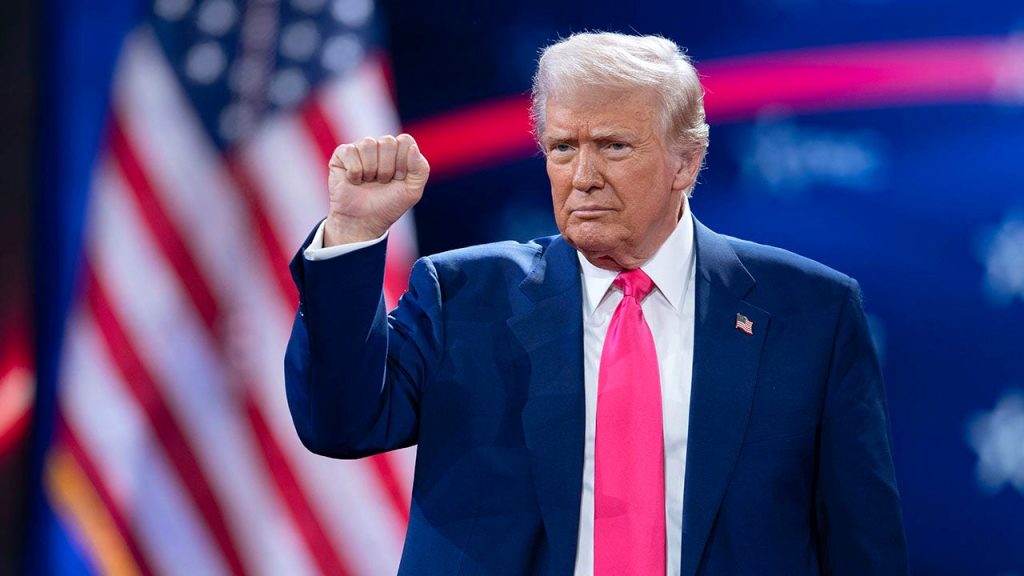A prominent Democratic congressman is demanding an ethics investigation into President Donald Trump’s controversial plans to accept a $400 million jet from Qatar. The luxurious Boeing 747-8 is proposed to serve temporarily as Air Force One, eventually transitioning to Trump’s presidential library post-term. Critics, including Rep. Ritchie Torres, argue that this transaction could violate the Emoluments Clause of the U.S. Constitution, raising serious questions about presidential conduct and ethics.
| Article Subheadings |
|---|
| 1) Ethics Investigation Demanded |
| 2) The Nature of the Gift |
| 3) Historical Context of Presidential Gifts |
| 4) Political Reactions |
| 5) Implications for Presidential Conduct |
Ethics Investigation Demanded
Rep. Ritchie Torres, a congressman from New York, has formally urged the Government Accountability Office to conduct an ethics investigation regarding the president’s acceptance of an extravagant gift from the government of Qatar. In a letter addressed to government officials, Torres expressed deep concern over the implications of such a transaction, labeling it a “flying grift” that contravenes the Emoluments Clause of the Constitution. This clause explicitly prohibits individuals holding public office from receiving gifts from foreign states, a guideline intended to ensure integrity in governmental affairs.
Torres described the proposed transaction as not only unprecedented in its scale but also problematic given its potential to set a concerning precedent in American politics. The congressman’s call for an investigation reflects a growing sentiment among critics who worry that accepting a gift of this magnitude undermines the ethical standards expected of a sitting president.
The Nature of the Gift
The Boeing 747-8 in question is being characterized as a lavish “palace in the sky” and will be utilized temporarily as Air Force One before being handed over for Trump’s private use. This $400 million aircraft is notable for its opulence and advanced technology, leading to significant scrutiny over its acceptance as a presidential gift.
President Trump has framed the transfer as a beneficial arrangement for the U.S. military, arguing that it represents a unique opportunity to modernize Air Force One without incurring direct costs to taxpayers. On social media, he emphasized the transparency of the transaction, stating, “the Defense Department is getting a GIFT, FREE OF CHARGE.” However, critics counter that such an arrangement invites deeper ethical questions about the line between official duty and personal gain.
Historical Context of Presidential Gifts
Historically, U.S. presidents have navigated the complex landscape of accepting gifts during their terms in office. Many have adhered to a tradition of categorizing such gifts as belonging to the office of the president, rather than personally to themselves. This practice allows presidents to utilize gifts during their tenure while ultimately transferring ownership to their presidential libraries post-term.
This practice has longstanding roots, aimed at maintaining the dignity of the office and preventing any appearance of impropriety. While previous presidents have followed this established norm, the scale and nature of Trump’s proposed acceptance—especially with its optics of grandeur—have stirred unprecedented debate about its legality and ethical ramifications.
Political Reactions
The news of Trump’s potential acceptance of the jet has prompted varied reactions from political figures across the spectrum. Many Democrats have expressed outrage, citing concerns not only about the constitutional implications but also about the broader ethical concerns surrounding Trump’s business dealings.
Conversely, some of Trump’s supporters have framed the criticism as an example of partisan bias, arguing that the deal could be advantageous for the U.S. and bolster diplomatic ties with Qatar. This dichotomy highlights the polarizing effect of Trump’s presidency, where issues often become highly politicized regardless of their inherent ethical considerations.
Implications for Presidential Conduct
The controversy surrounding the acceptance of a $400 million jet has broader implications for the ethical standards upheld by public officials. If Trump’s arrangement were to proceed without legal consequence, it might prompt future officeholders to navigate the complexities of foreign gifts differently, potentially blurring the lines of acceptable conduct.
As the discussion continues, many in the political landscape are left to ponder what this could mean for the future of presidential ethics. The potential for normalizing such extravagant gifts could reshape public expectations regarding accountability and integrity in government.
| No. | Key Points |
|---|---|
| 1 | Rep. Ritchie Torres is calling for an ethics investigation into President Trump’s acceptance of a gift from Qatar. |
| 2 | The proposed aircraft, a Boeing 747-8, is valued at $400 million and is described as luxurious. |
| 3 | The Emoluments Clause of the Constitution prohibits public officials from accepting foreign gifts. |
| 4 | Political reactions vary, highlighting the divisive nature of the issue. |
| 5 | The incident raises questions about future presidential conduct and ethical standards. |
Summary
The proposed acceptance of a $400 million jet from Qatar by President Trump has ignited a significant ethical debate, led by Rep. Ritchie Torres. The situation not only underscores the obligations imposed by the Emoluments Clause but also raises critical questions regarding transparency and integrity in presidential conduct. As discussions unfold, the political landscape remains charged, anticipating far-reaching consequences for future administrations.
Frequently Asked Questions
Question: What is the Emoluments Clause?
The Emoluments Clause is a provision in the U.S. Constitution that prohibits federal officeholders from accepting gifts or payments from foreign states without the consent of Congress.
Question: What aircraft is being discussed in this controversy?
The aircraft in question is a Boeing 747-8, which has been valued at approximately $400 million.
Question: How have past presidents handled gifts received while in office?
Past presidents have typically categorized gifts as belonging to the office of the president, which are then transferred to presidential libraries after they leave office.
